Spotlight: Creative Writing Studio
By Carmen Tomfohrde in conversation with Page Richards
I asked Dr. Page Richards to describe the numerous long-standing activities and new ventures under the umbrella of HKU’s Creative Writing Studio for an alumni magazine spotlight. It quickly became apparent that the a mere rattling off of the ventures in list-form, with a sketch of the objectives and mechanisms of each, would miss the spirit and vitality that gives each entity meaning.
My conversation with Dr. Richards began on a personal level, revealing mutual past commitments to STEM fields and experience in both creative production and analytic academic research in the Arts. Dr. Richards holds both the M.F.A. in Creative Writing from Boston University and a Ph.D. in literature from Harvard University. This preface became important throughout the conversation as we discussed collaboration and management of labor in creative production, how the distilled language of poetry may relate to translated work instructions in multi-national corporations, kinds of collaboration that are specific to literary forms, and the importance of time in both solitude and sharing presence together in a physical space. — Carmen
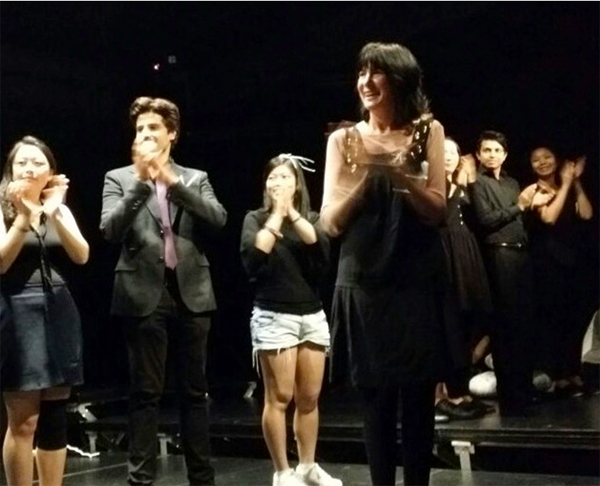
This is an exciting time for the arts in Hong Kong. There is a sense of electricity in the air.
The new HKU Black Box theatre and studio, originally spearheaded by Dr. Richards before the move to the new campus and generously funded by a recent grant that she wrote, has now expanded opportunities for the MFA and undergraduate writers, the HKU community, and international collaborations in writing, theatre, and production. Programming across the university and faculties, together with the Creative Writing Studio in the School of English, and along with artists throughout the city and world, will facilitate new workshops, a theatre festival, and other innovative projects to grow. The Black Box has already this past fall opened in collaboration with the international Still Point festival a production of an original script Only Through Time: Minding the Gap by MFA graduate and writer Wilson Chik. Table readings with actors and directors in coming workshops will give audiences a chance to watch original scripts to develop. Through a play-in-process series to come, for example, featuring scripts in progress by local and visiting playwrights, audiences may buy tickets to “see the pipes exposed” as a form of participatory engagement – or audiences may choose to attend only the final performance.
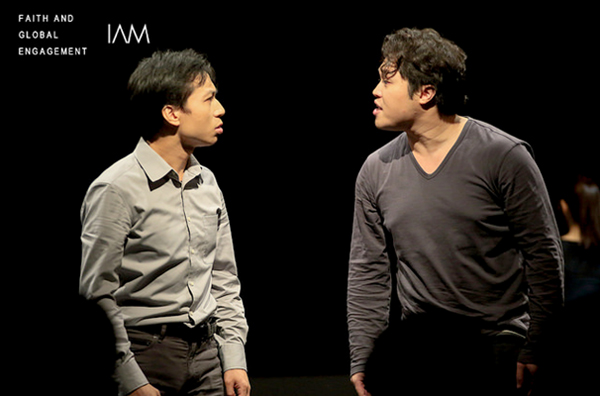
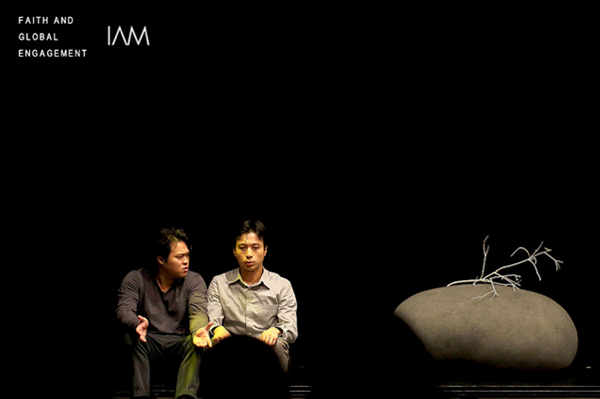
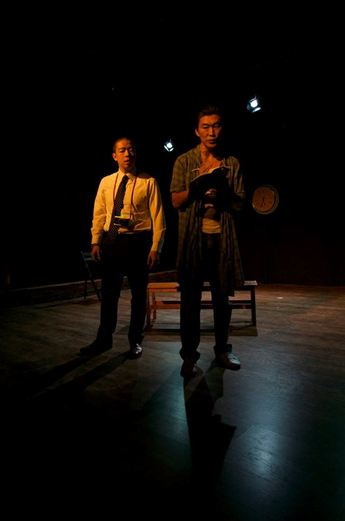
Image © Black Box Theater
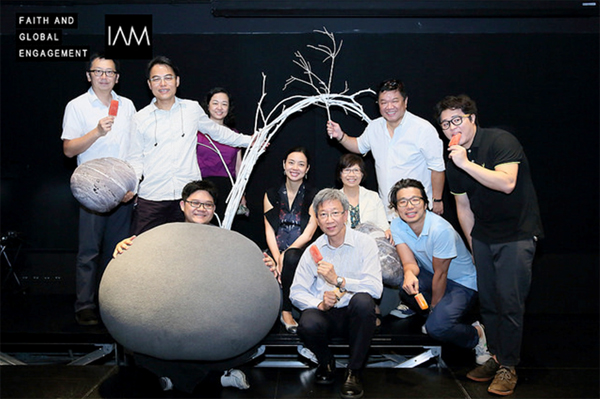
Image from “Only Through Time,” part of The Still Point, a festival organized by HKU’s Faith and Global Engagement, September 2014
Running for more than a decade, the Creative Writing Studio at HKU, a collaborative of creative writing initiatives, now includes undergraduate classes through the English B.A.; the M.F.A. in Creative Writing; new Black Box Theatre programming, the journal Yuan Yang; the Moving Poetry programme which collaborates each year now with the HKU Summer Institute and reaches out to local primary and secondary schools; the HKU International Poetry Prize; artistinvisible; the Writers’ Series; and the Drama Series.
Accredited and internationally recognized, the M.F.A. is a two-year, part-time course, which evolves each year – participants help to create what works here in Hong Kong. Weekly campus classes give students time to get to know each other and to develop a sense of community during their two years in the programme, and writing groups still thrive among students five years after graduation. As more generations of writers forge together on campus, former students return to lecture at HKU, moving horizontally, helping each other.
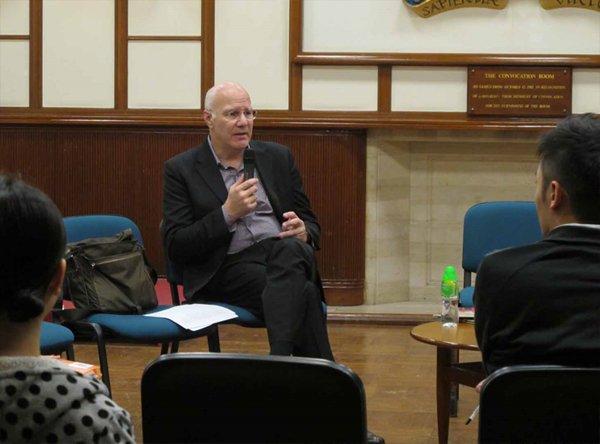
Image: Master Poet Henri Cole visiting through the University Artists Scheme and the Writers’ Series
Characteristics of this uniquely Hong Kong MFA include: a focus on the importance of history and literary translation very early in the programme; fluid studies and practices of literary genres; and discussions of time, temporal frames, and craft across languages and cultures, for example. Many of the MFA participants change their form or genre of focus between enrollment and graduation (e.g. from screenwriting to long fiction, or from drama to poetry, etc.), an opportunity that seldom exists in the U.S. postgraduate programmes, which frequently demand immediate specialization upon entry.
A full spectrum of histories and disciplines is represented in students’ backgrounds upon enrollment, including business, medicine, journalism, engineering, and history.
HKU’s creative writing programmes are “happily competitive to stay sharp,” according to Dr. Richards. Major cities welcome the presence of multiple programmes; this enables each to further define what it can offer, and to enable prospective students greater choice.
Opportunities for alumni participation include reading and selecting manuscripts for the Yuan Yang international journal, widening the international reach of the HKU Poetry Prize, internships with the Creative Writing Studio, as well as new opportunities in the Black Box theatre, managed by Aarti Hemnani, an umbrella of Black Box programming that will include alumni readings, alumni symposia and events, and exhibitions from alumni and community artists. The creative project artistinvisible welcomes connections through its website, inviting both visual art and textual submissions for online exhibition, along with a gallery exhibition in the Black Box, with selected winners featured in the Yuan Yang international journal.

Our apologies, you must be logged in to post a comment.